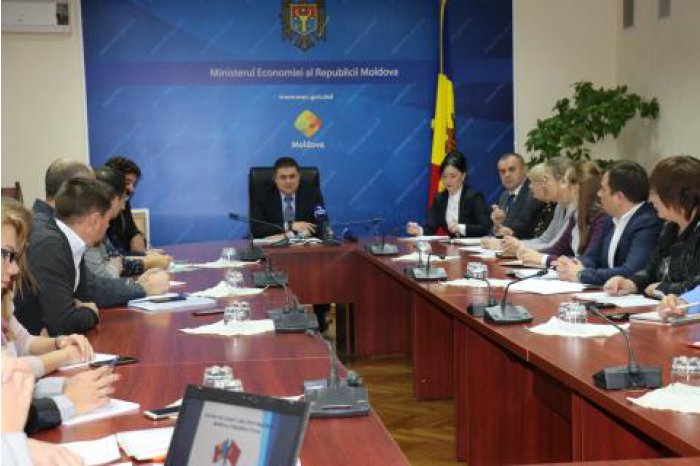Free trade agreement between Moldova, Turkey enters into force today
18:02 | 01.11.2016 Category: Economic
Chisinau, 1 November /MOLDPRES/ - The free trade agreement between Moldova and Turkey, which enters into force on 1 November 2016, is aimed at promoting mutual trade, developing economic relations between the two countries, as well as creating conditions for attracting investments, especially for developing joint investments in the two states.
Deputy Prime Minister, Economics Minister Octavian Calmic made statements to this effect at a roundtable organized by the Economics Ministry, with the participation of representatives of different associations of producers and companies from Moldova.
The Economics Ministry’s press service has said that, according to Deputy Prime Minister Octavian Calmic, Turkey is a strategic partner, with the example being also the foreign trade in January-August 2016, which stood at 220.3 million dollars. According to the economics minister, the Agreement will provide unlimited access, without tariff restrictions, to the import of agricultural and industrial goods on the market of Turkey, elimination of customs duties, clear-cut prospects for developing and stimulating common business, as well as the accumulation diagonally (for industrial goods) within the PanEuroMed system. “Through this document, we can implement more investment projects with participation of companies from Turkey, and due to the Association Agreement between Moldova and European Union, including the Deep and Comprehensive Free Trade Agreement (DCFTA), as well as to the provisions of the Free Trade Agreement within the Commonwealth of Independent States (CIS), we can become a quite attractive platform in the development of the commercial and economic relations between the West and East, including for the Turkish partners,” Octavian Calmic said.
The economics minister also said that the signing of the free trade agreement with Turkey was a first experience for Moldova. Calmic noted that bilateral consultations on initiating similar agreements with Egypt and China are to be launched in the near future. In the context, Deputy Prime Minister Calmic specified that the information spread by sources, alleging that the signing of documents of this kind is to the detriment of the native producers and would lead to the disappearance of certain sectors in the national economy, was groundless, given the all interests of the Moldovan economic agents were taken into account while working out and giving the final touches to the document. “For instance, the quotas set for the products from Turkey, which will be imported in Moldova based on the free trade agreement, account for 1-2 per cent of the domestic market volume,” the economics minister said.
Under the Agreement’s provisions, Moldova and Turkey will eliminate, respectively, 99.5 and 100 per cent of the duties with commercial value. The elimination of duties will allow Moldovan exporters annually saving large sums, due to low customs duties in Turkey. The agreement implies a gradual liberalization for the most sensible sectors of the economy, offering, at the same time, a string of instruments of commercial protection, in line with international practices.
Starting from 1 November 2016, all import customs duties, as well as any duty with equivalent effect, levied on industrial products, will be cancelled, except for some industrial goods, imported from Turkey, such as footwear, furniture, plastic products, etc., for which Moldova asked for setting a transition period from 3 to 5 years.
The free trade agreement between Moldova and Turkey was signed in Chisinau on 11 September 2014 and enters into force after its ratification by both states.
(Reporter A. Mardare, editor M. Jantovan)

